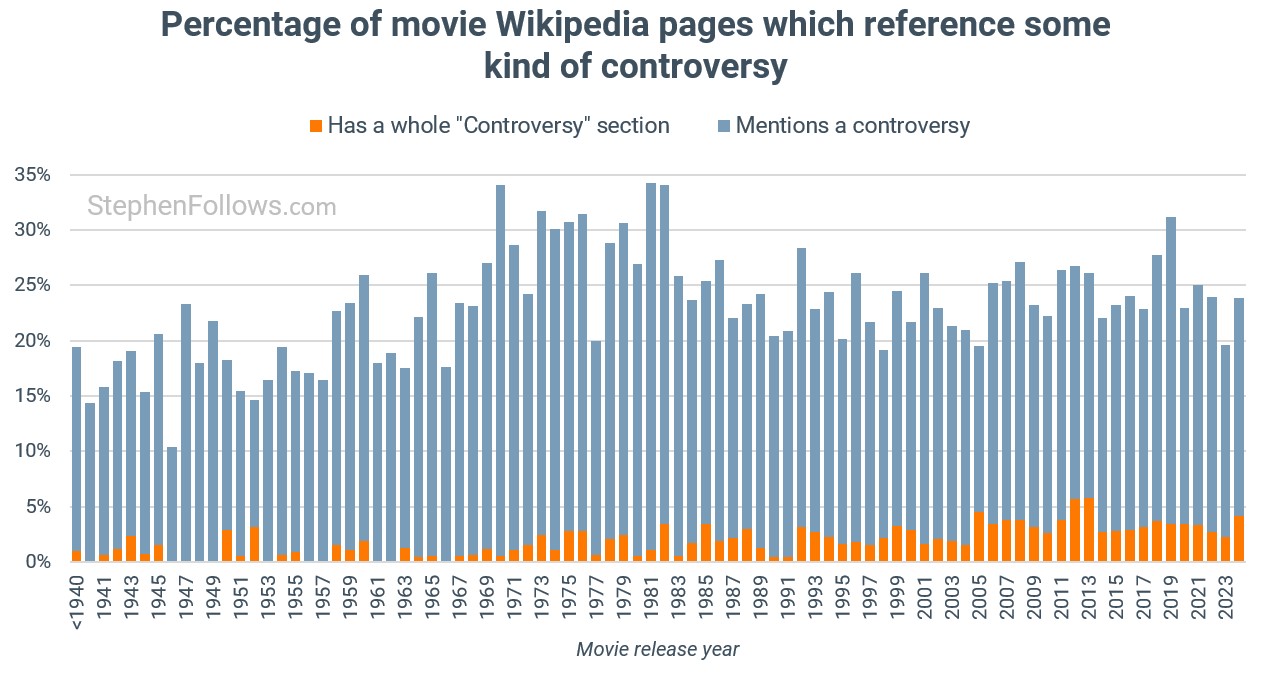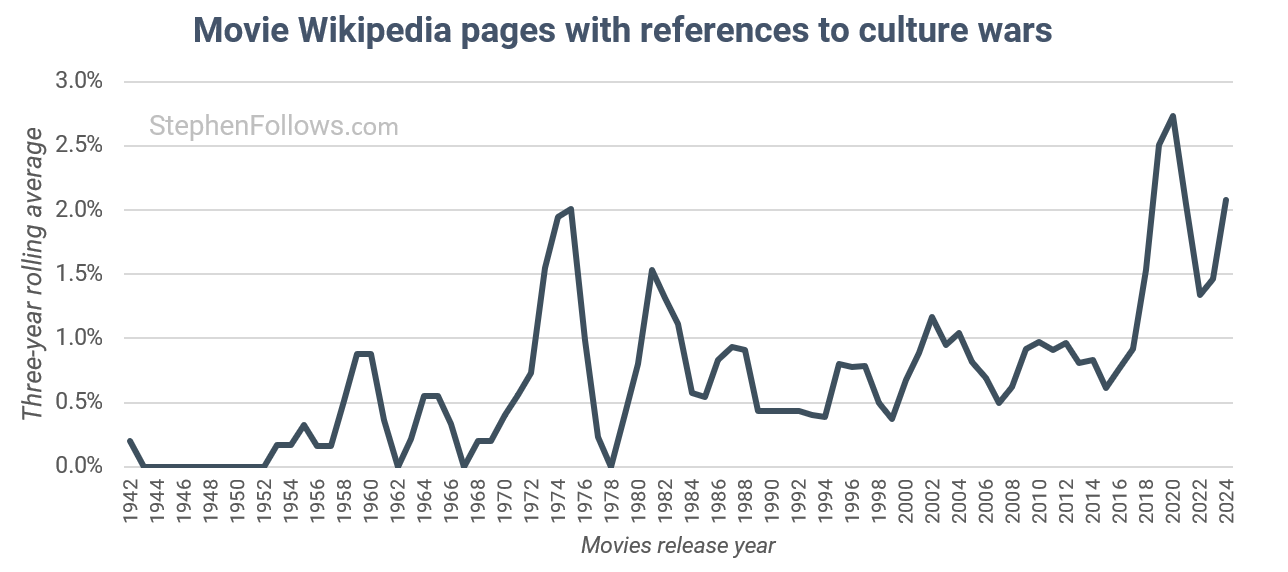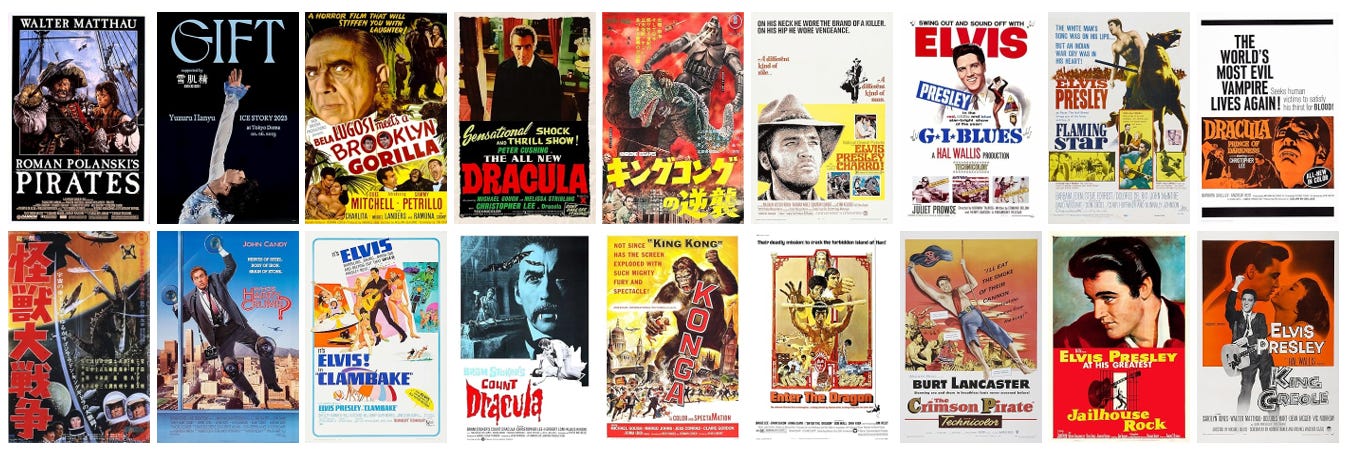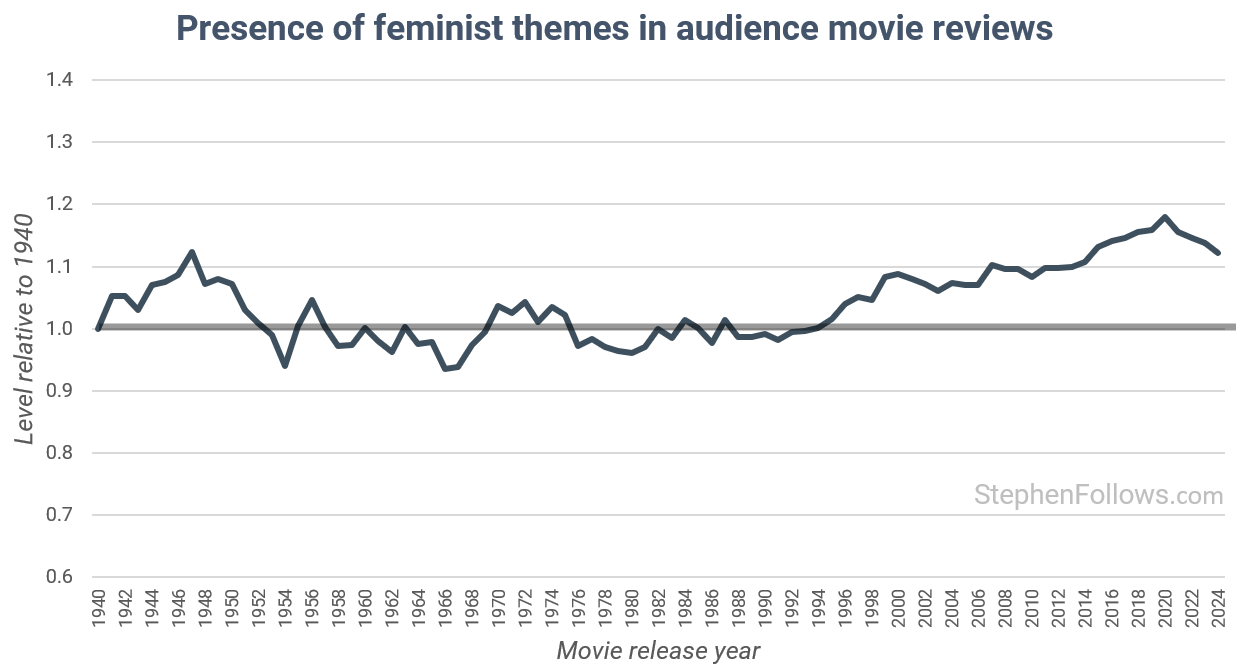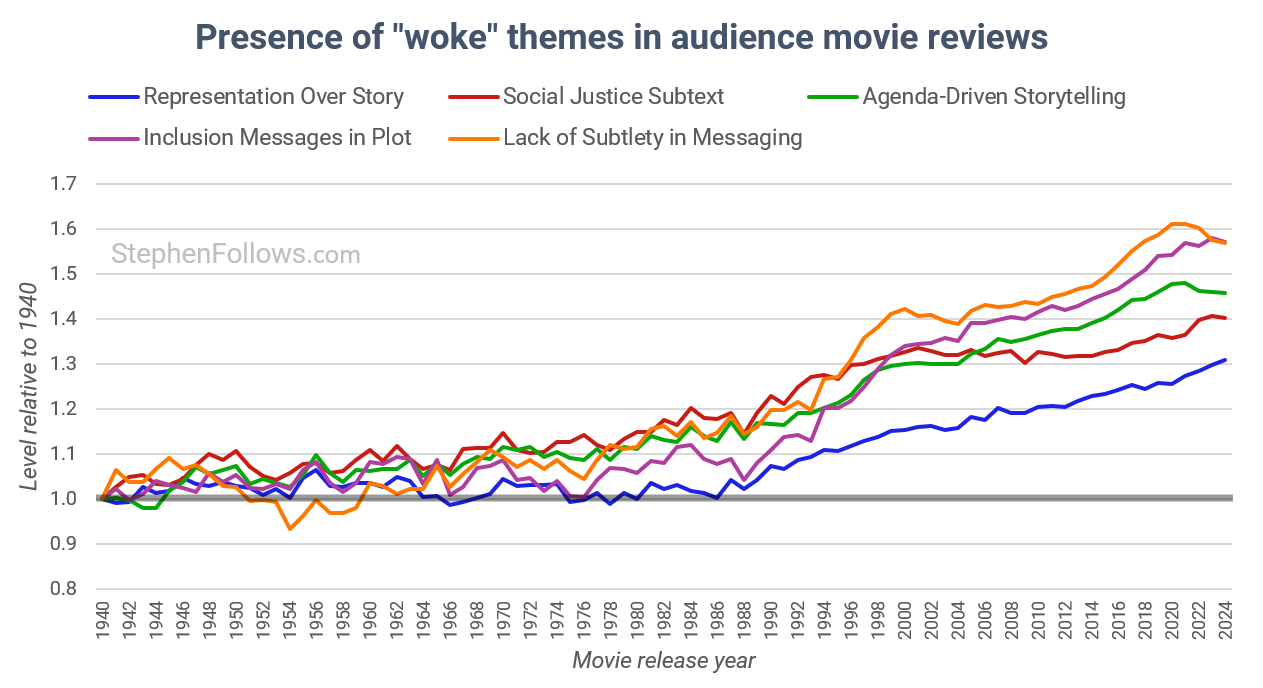Can we measure if movies have become "too woke"?
Everyone seems to have an opinion on whether films have become "too woke" but what happens when we try to measure it using actual data. Can we see shifts? How do they correlate with outcomes?
Over the past few years, more people have reached out asking some version of the same question: Are movies becoming too woke?
Some want proof that diversity and progressive themes deliver stronger box office. Others are looking for signs of overreach or audience alienation. But both sides share something in common. They want a way to measure it. And none of them can agree on what “woke” actually means.
The meaning of “woke” depends entirely on who’s speaking. Almost two-thirds of UK adults now say they are at least somewhat familiar with the term “being woke”. Its usage is also shifting, with 36% of the public seeing it as an insult, up from 24% in 2020. That shift is sharpest among older voters and Conservatives, while Labour supporters and younger people are more likely to see it as a compliment or at least neutral.
There is also a divide between those who make creative content and those who watch it. In a 2021 survey, 59% of TV executives said the industry hadn’t gone far enough on transgender rights, compared to just 31% of the general public. When asked if political correctness had gone too far, 62% of the public agreed, compared to just 19% of TV executives.
So the gap is widening. As “wokeness” gets more politicised, audiences and creators are talking past each other. That makes it harder to have a grounded debate, let alone measure anything useful.
Still, I wanted to try. If we’re going to ask whether films are “too woke”, we need to split it in two.
What does it mean for a movie to be woke? Can we track the presence of woke themes or decisions, regardless of whether they’re seen as good or bad?
What does “too much” mean? Are there links between perceived wokeness and other outcomes like box office, reviews or cultural pushback?
I’ve been working on this for a while, and it’s going to take a few articles before we get firm answers. Let me show you where I’ve got to so far…
Woke is in the ire of the beholder
I suspect that part of the reason that cinema often finds itself on the frontline of the current culture war(s) is that we all enjoy arguing about movies. Movies are shared culture, accessible to everyone, and feature powerful people, sexy stars, big money and salacious gossip - what’s not to love?!
To illustrate this point, I looked at the Wikipedia pages for 22,668 feature films and found that:
Controversy in movies is omnipresent, and
The most contentious period is not our current moment but that of the 1970s.
However, the topics under discussion have shifted over the past century. The 1970s controversies were more about workplace misconduct, censorship, and community backlash.
By contrast, the current decade is the high point for controversies connected to the culture wars (i.e. ideas of identity politics, cancel culture, political correctness, DEI and related woke-adjacent ideas).
Movies can be a Rorschach test, in that what you see in them says as much about you as about the film itself. The same film can represent free expression to one person and “everything wrong with modern culture” to another.
Arguing about movies gives people a low-stakes way to air high-stakes questions, so it’s perhaps unsurprising that they are invoked so often in conversations about wokeness.
But we should remember that just because they are often cited at the tip of the argumentative spear, that doesn’t automatically mean that they actually are relevant to the debate they’re being summoned within.
So, our first question is - do movies contain woke ideas or themes?
Woke up this morning?
If we want to measure “wokeness”, we can’t just rely on a single definition. Instead, we need to look at what kinds of ideas or decisions tend to attract the “woke” label.
To build a proper method, I decided to look in two places:
Off-screen. What do people say about a film? What kinds of films attract audience discussion around these themes?
On-screen. Do those themes actually appear in the plot?
We’ll start with what people are saying.
Woke the line
The first step is to find out which films get talked about as being woke. To do this I built a database of over four million public user reviews across 51,240 feature films, and looked for how close the reviews were in meaning to key themes.
Rather than just searching for keywords, I used a method based on language similarity. I wrote a batch of short dummy reviews, each one focused on a specific cultural or political theme. These included things like feminism, LGBT identity, social justice, and climate change. Then I mapped every real film review into a mathematical space based on the language it used, and compared each one to my dummy reviews. The closer a film’s reviews were to a dummy, the more likely it was that audiences were talking about that theme.
As an illustration, the films with the highest levels of feminist discourse in their reviews include She Said, Suffragette, Roe v. Wade, and Women Talking.
A helpful example is to note that among the highest scoring films in this metric was The Red Pill, a documentary exploring the polarised world of the Men’s Rights Movement. Its inclusion illustrates that this approach captures when people are talking about feminism, regardless of whether they are supporting or opposing it.
At the other end of the spectrum, the movies that generate the lowest levels of conversation around feminist themes seem to be those featuring kung fu, Dracula, Godzilla, and Elvis.
Comparing the levels of discussion of feminist ideas in reviews over time shows a slight increase over the past couple of decades.
When I charted feminist discourse across all films over time, the results showed a clear upward trend. Audience conversation around feminist ideas has slowly grown over the past two decades.
The chart below shows the average annual figure compared to an arbitrary 1940 base.
With this method, we can look for any number of woke-adjacent themes. I isolated a handful that showed the strongest growth and clearest patterns in audience language. These were:
Inclusion as plot. Where inclusion or identity is central to the story or character arcs.
Lack of subtlety. Where the messaging is delivered in a direct, heavy-handed way.
Agenda-driven storytelling. Where the story seems built to push a viewpoint rather than develop characters or drama.
Social justice subtext. Where the themes beneath the plot reflect issues like inequality or systemic power.
Representation over story. Where casting or content choices appear to prioritise identity over narrative cohesion.
This doesn’t tell us whether audiences liked or disliked these elements. It simply shows that these topics are being discussed more than they used to be, and that some films attract more attention around them than others.
A woke of art
Next, I turned to what’s actually in the films themselves.



